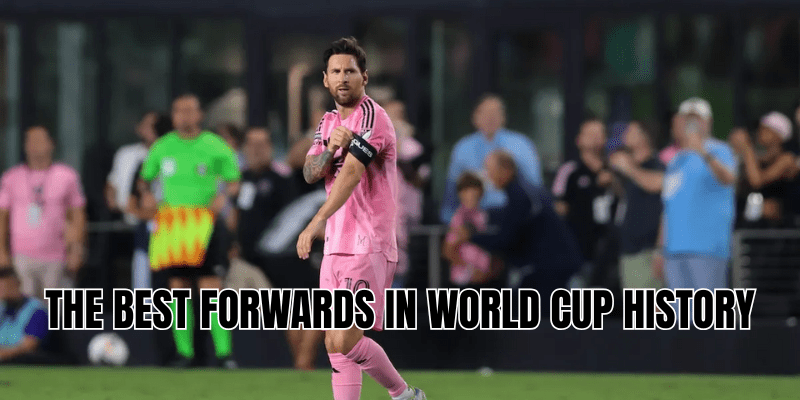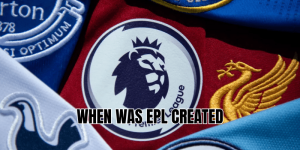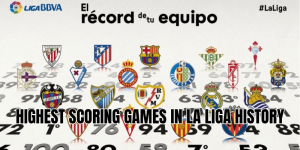In the grand theater of football, the best forwards in World Cup history are the ones whose boots echo in memory — the scorers who can bend a final, seize a moment, and write their names across generations. At DaoKick, we believe the World Cup is where legends are born, and no role shines brighter than the one leading the attack. In this article, we will dive into the greatest strikers ever to grace the tournament: their records, moments, and why they deserve a place in this hall of fame.
What makes a World Cup forward “the best”?
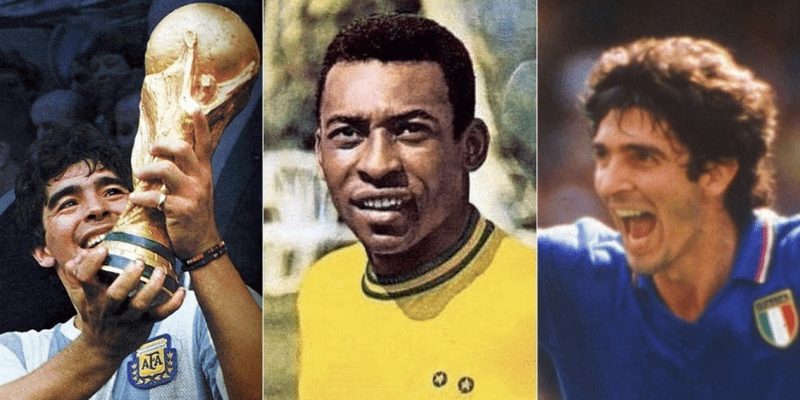
Before listing names, it’s worth asking: what criteria separate a great striker from a World Cup legend? For DaoKick, the measures are:
- Goals and consistency — goals, and longevity across editions
- Impact in crucial matches — semifinals, finals, knockout matches, match-winners
- Records and uniqueness — single-tournament records, breakthrough performances
- Skill, style, and influence — not just poachers, but complete forwards: vision, dribble, movement
Using those lenses, we now step into history and pick the giants.
The top giants: forwards who defined World Cup glory
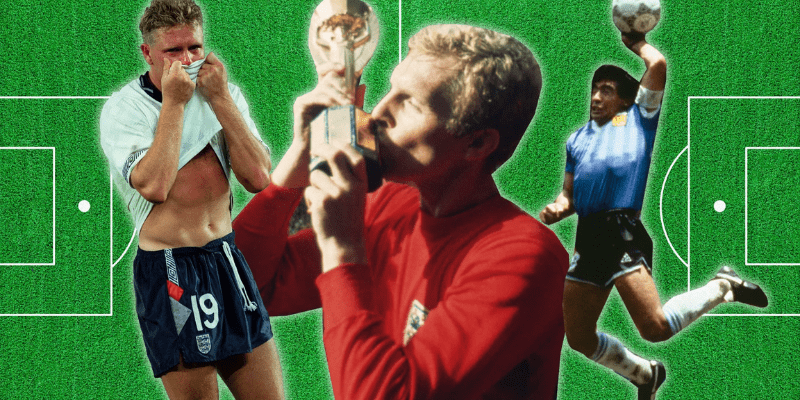
Below are some of the best forwards in World Cup history, blending statistics and narratives. Note: this is not a ranked list.
Miroslav Klose (Germany)
Miroslav Klose holds the outright record for most goals in World Cup history with 16 goals over 24 matches across four editions.
He never scored in a final, but was routinely decisive in knockout stages. His consistency, aerial ability, penalties, and positional intelligence made him a forward who aged gracefully. Rival forwards may match flair, but few can match that sheer accumulation of goals on the biggest stage.
Ronaldo Nazário (Brazil)
With 15 goals in just 19 matches, Ronaldo remains one of the most potent forwards ever at the World Cup.
He won the Golden Boot in 2002, scored twice in the final, and resurrected his career after injuries to become “O Fenômeno” again. His speed, dribbling, and finishing turned defenses helpless — the archetypal modern forward.
Gerd Müller (West Germany)
Gerd Müller might have had fewer tournaments, but his efficiency is staggering: 14 goals in 13 matches, a goals-per-game rate of over 1.0.
In the 1970 tournament, he bagged 10 goals and won the Golden Boot. Müller was the prototype of the clinical poacher: fewer frills, just ruthless finishing at prime pace.
Just Fontaine (France)
Fontaine’s name is etched in gold: 13 goals in a single World Cup (1958) — the record for most in one edition. ikipedia])
He achieved that in just six matches. If a striker ever lit up one tournament and vanished, Fontaine’s 1958 remains untouchable. His record is a testament to peak performance in that one week of history.
Pelé (Brazil)
Pelé scored 12 World Cup goals over his career, appearing in four tournaments and winning three.
While some forwards had more prolific goal tallies, Pelé’s influence transcended scoring: he orchestrated, he created, he became a symbol. His goals in finals and big matches (1962, 1970) lock him into this pantheon.
Lionel Messi (Argentina)
Messi has scored 13 World Cup goals so far and remains active, hoping to climb higher.
His crowning moment came in 2022, when he captained Argentina to victory with clutch goals and moments. His blend of playmaking, dribbling, finishing, and leadership make him one of the best forwards in World Cup history not just by goals but by magic.
Kylian Mbappé (France)
Though younger than many above, Mbappé is already a World Cup force: 12 goals as of now, including a hat-trick in the 2022 final.
He’s fast, composed under pressure, and already has a Golden Boot to his name. If his career continues its upward arc, history may treat him as among the greatest.
Sándor Kocsis (Hungary)
An older legend from the 1950s: Kocsis scored 11 goals in just 5 matches (1954) — an astonishing average.
Part of the “Golden Team” of Hungary, his shooting power and positioning were unmatched. In his day, defenders had nightmares.
Jürgen Klinsmann (Germany)
With 11 World Cup goals, spread across three tournaments, Klinsmann combined flair, flair for the stage, and leadership.
He scored in final tournaments, played with intensity, and his role went beyond scoring: pressing, linking play, and inspiring his team.
Helmut Rahn, Gary Lineker, and Others
These forwards may not top all-time charts, but each had signature impact. Helmut Rahn scored the winning goal in the 1954 final. Gary Lineker was Golden Boot winner in 1986 and scored in the 1990s editions.
Statistical comparison: what the numbers tell us
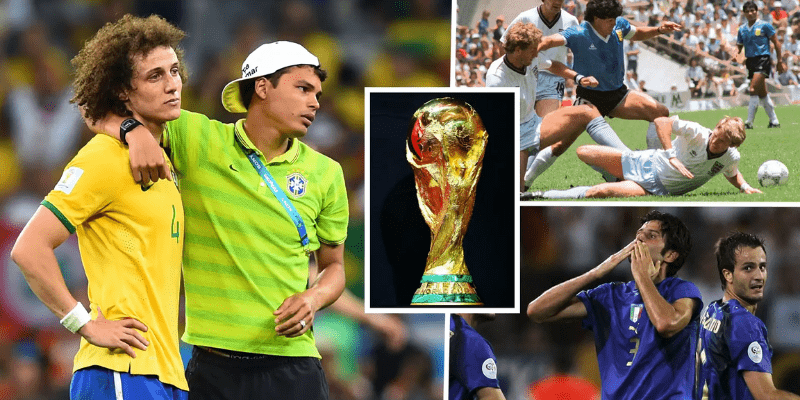
Here’s a snapshot of metrics among these legends:
| Player | World Cup Goals | Matches | Goals per Match | Notable Record |
| Miroslav Klose | 16 | 24 | ~0.67 | All-time highest scorer |
| Ronaldo Nazário | 15 | 19 | ~0.79 | High efficiency, 2002 Golden Boot |
| Gerd Müller | 14 | 13 | ~1.08 | Most efficient of big names |
| Just Fontaine | 13 | 6 | ~2.17 | All-time single tournament record |
| Lionel Messi | 13+ (active) | 26 | ~0.50 | Most appearances + leadership impact |
| Pelé | 12 | 14 | ~0.86 | Three-time World Cup winner |
| Kylian Mbappé | 12 (active) | 14 | ~0.86 | Youngest hat-trick in a final match |
| Sándor Kocsis | 11 | 5 | ~2.20 | Phenomenal 1954 performance |
| Jürgen Klinsmann | 11 | – | – | Consistent across tournaments |
Beyond pure numbers, each forward’s influence in decisive games, leadership, and style bring them into this elite conversation.
Why others don’t always make the cut
You may wonder: what about Kylian Mbappé’s future, or Cristiano Ronaldo’s appearances, or legends like Romário?
- Cristiano Ronaldo has scored in five World Cups, but his totals and moments don’t quite match the pure goal impact in knockout matches.
- Others like Romário shone in one edition, but lacked sustained range across tournaments.
- Some prolific scorers lacked impact when it mattered: semifinal goals, final goals, or game-winners.
To be among the best forwards in World Cup history, you must combine consistency, moments, and records.
Legacy and lessons
These forwards teach us what greatness in the World Cup really is:
- Peak performance matters as much as career totals — Fontaine did more in one edition than many over entire careers.
- Impact in knockout stages defines legend, not group stage padding.
- Efficiency and longevity complement one another — Klose scores most, Müller’s rate is unmatched, Messi’s longevity gives depth.
- Adaptability to pressure — finals, quarterfinals, sudden death matches separate the icons.
Final Thoughts
The best forwards in World Cup history are not just names in a list—they embody what it means to shine when the world watches. From Klose’s unmatched tally, to Ronaldo’s comeback and flair, to Fontaine’s single-tournament masterpiece, these forwards electrify our memories.
At DaoKick, we hope this journey through legends fuels your passion. Who’s your favorite among them? Share your top forward, compare their moments, and stay tuned — because the next World Cup might crown a new legend among the elite.
